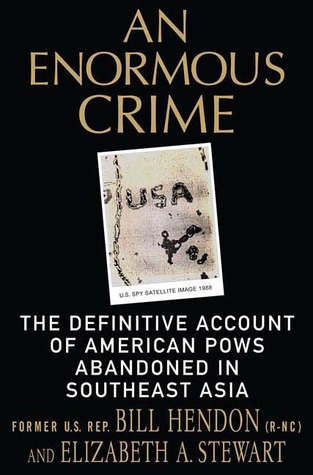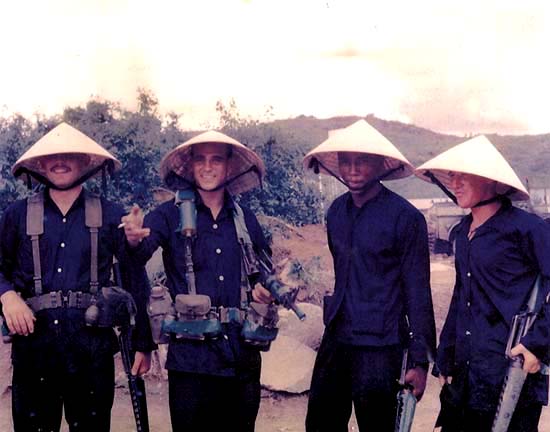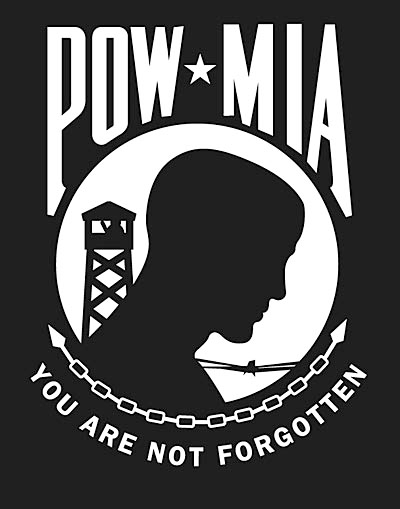The Rambo II mission is inspired by a famous eighties urban legend regarding an alleged really-happened intelligence mission which featured US Special Forces soldiers infiltrating Vietnam.
Then years after the end of the Vietnam War, many think a Delta Force team was really investigating the idea that the Vietnamese were still holding a number of US POWs.
This suspect made many American families suffer for many years after the end of the war because many soldiers never came back from their missions (the 'missing in action') and nothing is known about their fate. Did they die while fighting? Were they captured then killed?
Regarding many of them, we will never know. They simply vanished into nothing, and during the eighties the Delta Force was investigating those cases, as Eric L. Haney admitted. Haney is a former Delta Force member and co-founder, but he denied that the mission ever received a green light (“Two times the mission was in 'stand-by' condition”).
This was the starting point used by James Cameron (the 'Terminator', 'Titanic' and Avatar's director) to write the script for the second Rambo movie.
The movie puts on the big screen a fantasy version of the urban legend that circulated at the time regarding this alleged 'info gathering mission'.
Even if holding prisoners forever – denying their existence – doesn't have any meaning at all from a strictly military/strategic point of view, there is a small chance this truly happened.
The book 'An Enormous Crime' by Bill Hendon and Elizabeth Stewart, despite NOT being written using a correct historical/scientific method (it correctly describes the facts, but takes conclusions with too much freedom, clearly 'forgetting' that ANY war produces a lot of missing in action), it is an interesting book because it finally explains once for all why so many people were absolutely sure that the Vietnamese were still holding US POWs after the end of the war.
Also, it exactly explains the same theory that the Murdock character has in the movie.
Speaking the truth it's a possible theory (even if it lacks any evidence at all, so it's nothing more than a pure idea) for two reasons.
The first is that the US pulls out from the Vietnam while the conflict is still going on, even if North Vietnam denies it (Nixon said that had North Vietnam attacked the South again, the US would have come back to Vietnam). So, the POWs could still be of some use.
The second reason is that it had already happened in the past.
For example, it happened to an Italian soldier after WWI.
Captured from the Russians in civilian clothes - because he was a Special Sorces soldier – he was considered a common criminal and the Italians were never notified about his capture.
His family was notified that he was still alive only when – after Stalin's death – the Russians wished to have better relationships with foreign countries. They admitted that he was alive and a prisoner only ten years after his capture, without giving any explanation about it and with great damage to his family, that by then thought him dead for many years.
Something similar could have happened in Vietnam too, and somewhat 'because' of the US themselves.
Between '65 and '67, the MacVsog ran illegal missions on neutral countries' soil like Cambodia and Laos. Soldiers took off their official uniforms and dog tags, and absolutely acted underground. In case they were captured, their commanders denied to have ordered them any mission at all, thus leaving their men to their destinies. Soldiers were fully aware of this, and accepted the risk.
Between experts soldiers, the Vietnam War looked like a desperate war from the very first moment, and the idea of sacrifices like these once looked like nothing more than one of the natural consequences of such a desperate situation. In this way the US acted over the Vietnam border (Laos, Cambodia and – at a later date – in North Vietnam too), avoiding the risk of being judged by the international public and most of all not giving the Russians an excuse to start a nuclear war.
From the third Rambo movie:
“I want you to know up front that if you are captured or killed,or if any of this leaks we'll deny any participation or even knowledge of your existence ”
And Rambo replies:
“I am used to it”
In case of capture, soldiers were trained to act as if they were mercenaries, smugglers or anything else, and the Vietcong didn't consider them soldiers.
After the United States pulled out, the lie had no reason to exist anymore, but – after years spent lying - it would be too late for their captors to believe to the truth.
Anyway, there is no evidence at all that this has ever happened.
Whatever the Special Forces used to say to their captors, the Vietcong usually treated them as US soldiers just because they were Americans.
And whatever happened to those missing, most of them just died on difficult terrain or faraway places, and their location was then lost.
Regarding the prisoners captured but then 'lost' by their captors, the most believable thing is that they were tortured, killed and made disappear for public image reasons. In other words, to forbid them to tell the world what the Vietcong had done to them.
Keeping prisoners alive for decades, denying their existence, is expensive and has no military value, which is the reason the American government and historians alike think that none of this had ever happened until anyone show evidence to the contrary.
And in the end, almost forty years from the end of the conflict, no one has ever produced anything similar to evidence that anything of this has ever happened.
Here above is the logo of the non-governmental organizations that still investigate the destinies of the missing in action.






